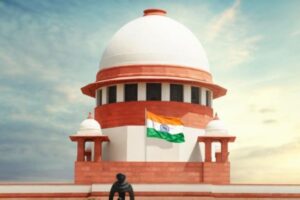
AAP government has recently moved to the Supreme Court against the NGT’s decision to name LG as a chairperson of the high-level committee on Yamuna.
The government asserted in its petition that naming the Lieutenant Governor as the committee head was a “violation of the constitutional scheme” of governance in the capital and the recent judgment of the Constitution bench of SC, that gave the elected exemption control over the services matters.
However, the elected dispensation urged the apex court to quash the NGT order and ensure the mandate of duly elected government of the NCT of Delhi was “respected”.
On January 9 this year, NGT set up a committee comprising several agencies to address the issue of pollution in the Yamuna, with the LG as its chairperson & chief secretary of Delhi, secretaries of several departments of Delhi government, chiefs of DJB and DDA, apart from the representatives of several central government ministries, among others, as members.
Furthermore, the Delhi government recognized the need for interdepartmental coordination to address the pollution at Yamuna and remedial measures implementation, it has strongly objected to the executive powers granted to the LG.
Therefore, it contended the administrative structure in the capital and provisions of Article 239AA of the Constitution.
Petition stated that “While the appellant acknowledges the importance of a coordinated approach, the language used side-lines the elected government. The effect of the NGT’s orders cannot be to confer executive powers to an authority that cannot, under the constitutional scheme, be conferred on it and is instead vested with the elected government.”
Also, the Delhi government highlighted that the supreme court Constitution bench, in a July 2018 judgment, established that the elected government possessed “exclusive executive powers” over all subjects in the state and concurrent list, with the public order’s exception, police, land, and the LG had not been entrusted with any independent decision-making power.
The government in a statement stated that “A five-judge Constitution bench, in its May 11 order, upheld this position.”
Furthermore, the elected dispensation argued NGT’s proposed remedial measures, such as using treated water for agriculture, horticulture, or industrial purposes, preventing waste discharge and dumping, protecting floodplain zones, implementing plantations, maintaining dredging flow, and desilting of drains, required monetary allocations that were approved by the Assembly.
The government said in the petition that, “Consequently, the role of the elected government becomes crucial in overseeing these measures. The elected government is committed to addressing the issue of making Yamuna a clean river free from pollutants and allocating the necessary funds.”





